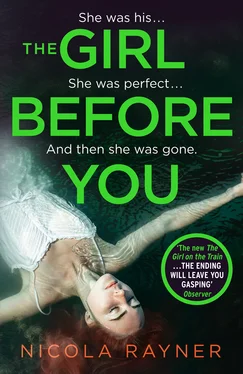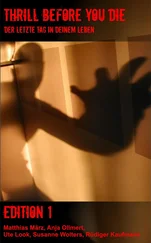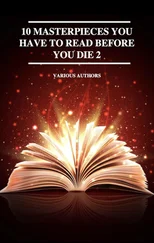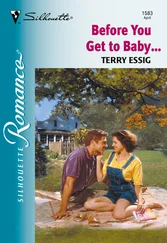‘My mother says these are the years,’ said Christie.
‘The years for what?’
‘Finding the right person. We’ll never have it as good as this – never again be surrounded by so many bright young men.’ She looked hard at Alice. ‘Do you know Magnus? The only decent hairdresser in town. He’s da bomb .’ Christie had the unfortunate habit of trying to pep up her rather conservative way of speaking with occasional street lingo. It didn’t really work.
Alice put a hand to her hair. ‘No, I don’t.’
‘I’m going to take you to see him. He’ll sort you out. My treat.’
As she sat in Magnus’s chair, her hair falling from her in drifts, Alice suddenly felt unspeakably sad, as if she were being shorn of her old self; as if pieces of her childhood were falling away from her. She closed her eyes.
‘It’s going to be so worth it,’ said Christie from behind her, reading her mind. And, strangely enough, she was right. Alice emerged from the salon as if from a chrysalis. Her brown hair became a short blonde bob, framing her eyes and making her look neat, in charge and altogether less mousy.
‘We need to get you some clothes to match,’ Christie said. ‘Let’s start with a dress.’
That night, in her new Karen Millen dress, George, in his final year, noticed Alice for the first time. It was not a style Alice would have normally gone for, with a bodice in turquoise and a hot pink skirt, but it attracted the eye, as Christie put it, and emphasised her tiny waist. It cost her a serious chunk of her student loan, but it was worth it for the reaction it got. In between making eyes at George, she calculated how she was going to live for the rest of the term. She’d certainly have to work through the holidays.
At the end of the night, George walked her back to her room, but she allowed him only to the bottom of the staircase.
‘So, which one’s yours?’ He smiled, looking up the stairs.
‘You’ll see.’ She smiled back. ‘Maybe.’
His mouth looked sulky for a moment; he took a step closer to her.
‘But it would be fun to see it now.’
Keep it light, Christie had said.
‘Yes, but it’ll be something for you to look forward to.’
Alice stepped closer too, glanced up through her eyelashes at George.
He reached for her hand, his eyes glassy, unfocused. It wasn’t quite how she’d imagined it. Standing on tiptoes, she kissed his cheek for a second, inhaling the whisky and aftershave smell of him, then turned quickly and trotted up the stairs.
‘Anna, come back!’ George had called after her petulantly. ‘Anna!’
‘No,’ she shouted back. ‘And it’s Alice.’
Naomi Naomi Kat Alice Naomi Kat Naomi Alice Kat Naomi Alice Naomi Kat Naomi Alice Naomi Alice Kat Naomi Alice Naomi Kat Naomi Kat Alice Kat Alice Kat Naomi Alice Naomi Kat Naomi Kat Alice Kat Alice Naomi Alice Naomi Kat Naomi Acknowledgements About the Author About the Publisher
She always had a temper. She broke my arm as a child – an accident, of course: I’d been cheating at Grandmother’s Footsteps and she pushed me too hard, misjudged her own strength.
Then there was my first boyfriend, Jamie Havers. A boy with brown hair and freckles. He used to follow me around Pony Club Camp when I was eleven. I liked him, but I didn’t want to kiss him, so he stopped talking to me and told the other boys I was frigid. It made me cry.
The day after he dumped me, Ruth asked the boys if she could join in with their game of touch rugby. I remember it was a hot August day and being outside all week had tanned the boys’ noses. Mrs Jenkins, who was in charge of looking after the children at camp, was wedged into a deckchair outside her caravan, keeping an eye on everyone and watching the game.
Ruth considered the scene for a bit and then approached the biggest of the boys. ‘Can I play?’
He squinted down at her. ‘There aren’t any other girls playing.’
‘So?’
‘Let her play,’ said a cheery dark-haired boy who was friends with Ruth.
She hung back at first, running for the ball but not trying too hard. She was biding her time for when Jamie got hold of it, which he did before too long. He was a good player, tenacious and nippy. But Ruth was faster. As he ran for the try-line, she began to give chase and just before he reached it, she caught the edge of his T-shirt in her hand and gave it a yank so that he fell, stumbling, to the floor. Then the pair of them were wrestling for the ball, rolling over and over each other. It got so vicious that the other boys started jeering and even Mrs Jenkins sounded panicked as she heaved herself up from her deckchair to disentangle them.
Ruth came out of the tussle wild-haired, with a scratch down her face, but she laughed off any fuss from me. ‘It’s just rugby,’ she said. ‘Just a fight for the ball.’
Where we were from rugby was a religion. The bar didn’t have a telly – Grandma wouldn’t hear of it – but the locals would gather afterwards to discuss the game. Everyone had an opinion on it.
We knew our father was different, though: he didn’t care as much for rugby as other men did, but he had to pretend. He was proud of the differences he’d chosen – the bow tie and flashy car – but there were ways in which he wanted to be the same, wanted to fit in with the posh crowd. Loo not toilet, lunch not dinner, long-sleeved shirts not short. There was so much to remember and apart from the voice, the slight flatness of his vowels, you’d almost never have known.
‘What do you think about these changes to the scrum rules?’ he asked one day in the bar after a game, cribbing from a newspaper article he’d just read.
‘It’ll make it harder on the pitch. Not that you’d know.’
It went quiet, the hum of conversation dying down for a moment the way it does in films. Dai the Poet had been drinking in The Swan all day. His hands looked swollen on his glass as he handed it to our mother for a refill. No please or thank you.
‘What do you mean?’
Our father wasn’t as drunk as Dai – he didn’t drink like that – but he’d had a couple of beers and you could tell, if you knew him well, when he was about to lose his temper: a quick tightening of the mouth, which Ruth inherited, a change in the focus of his eyes.
Dai’s laughter came out like a breath. ‘Not a game you played at school, I imagine.’
Our mum, with Dai’s glass in her hand, paused for a moment before filling it.
‘Where was that again?’ Dai said. ‘Your school?’
Our father ignored the question. ‘I played rugby at school,’ he said shortly, looking away from Dai as the lie came out.
He never talked about his childhood. And you could see that Dai – I never knew why they called him Dai; he sounded as English as they came – guessed, too, and that it was a test.
When the glass she had been holding shattered on the tiles, our mother didn’t do anything to clear it up, just looked at Dai steadily: ‘I remember coming to see you play rugby.’ She glanced at our dad. ‘He wasn’t very good.’
Later, chopping avocados in the kitchen, she said to us: ‘Public school boys. They are soft on the outside and hard on the inside.’ She held up the stone of an avocado. ‘Be careful of them, girls. They seem so polite, so courteous …’ She paused, looking for the words. ‘I don’t know what those schools do to them.’ She didn’t usually speak to us like that. As if we were already grown up. ‘And the worst thing is,’ she added, looking sadder than I’d ever seen her, ‘he wants to be one of them.’
Конец ознакомительного фрагмента.
Читать дальше












